During September 25th to 29th, 2019, twelve graduate students of Tongji Law School went to Japan and attended the “Law Forum for Academic Cooperation between Tongji University and Ritsumeikan University”. The theme of this forum is “Comparative Study of Law and Technology between China and Japan”. Teachers of Tongji University in charge included Xu Gang, Deputy Dean of Tongji Law School, Xu Wenhai, assistant professor, and Zeng Caixia from International Affairs Office. Professor Tadashi YAMAMOTO, Professor Shinji TOKUGAWA, Professor Shuhei NINOMIYA, Professor Kouji ADACHI, Professor Masaharu MIYAWAKI, Professor Misako ODA, and graduate students attended the forum. The forum was presided over by Professor Yamamoto Tadashi. The students from both universities made academic reports and exchanged ideas on the issue of “Law and Technology” in the perspectives of different branch laws.
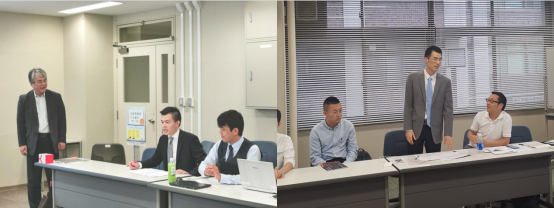
At the beginning of the forum, Professor Yamamoto, Dean of the college of law at Ritsumeikan University, welcomed the postgraduates from Tongji University and introduced the development of law research in Ritsumeikan University. Xu Gang, Deputy Dean of Tongji Law School, explained the background of the forum and introduced the development of law discipline in Tongji University. Professor Shuhei NINOMIYA, former dean of the college of law at Ritsumeikan University, delivered a speech, in which he congratulated the holding of the academic forum and hoped that the two sides could further intensify cooperation in the future.
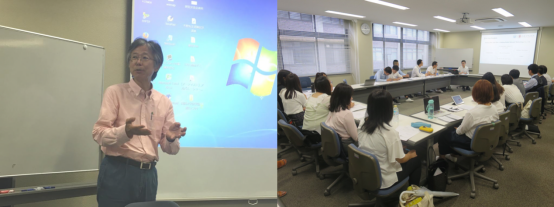
The forum consisted of three parts: student report, teacher’s comment and discussion. Students expressed their views in English on the challenges and solutions of law in the context of technology development, and the related topics aroused a heated discussion between teachers and students. Chinese student Liu Jie introduced the construction of China’s smart court; Chen Kai presented criteria of legal entities in AI infringement; Cui Liwen and Zhou Wentao respectively reported the balance between financial technology innovation and legal supervision; Zhang Liang discussed the ownership of artworks created by AI; Ruan Danxia reported on the judicial application and challenges of big data. Japanese Student Tamaki SEYA introduced the development of DNA technology in Japanese criminal investigation, and raised the question to what extent can DNA identification be used as evidence in a case. Takuya HIHARA discussed the criminal responsibility of the autopilot car. Ayaka NOBE shared her thoughts on the protection of copyright of digital music.

After the academic report, the well-known Japanese intellectual property scholar, Professor Masaharu MIYAWAKI delivered a lecture on the copyright protection of art works created by artificial intelligence in Japan. Till now, there is no specific law in Japan on how to protect the copyright of art works created by artificial intelligence. Rules of trade secret are applied in legal practice. Everyone showed great interest in Prof. Masaharu’s lecture, and discussed relevant issues.
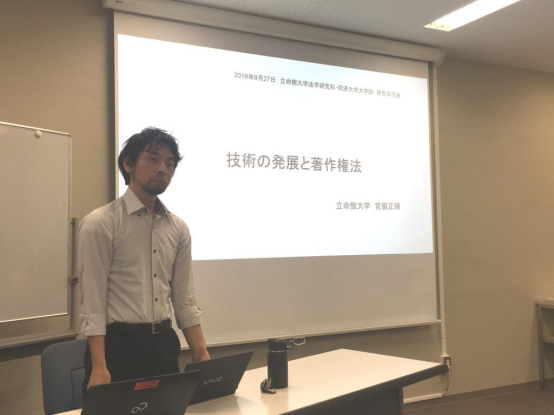
During the five days at Ritsumeikan University, the students visited the law research institution, library and campus. Ritsumeikan University also arranged students to visit the Kyoto Lawyer’s Association. Akihisa TANAKA, President of the Kyoto Lawyer’s Association, introduced Japan's lawyer system. Meanwhile, Tongji students and teachers were also visited to the Otsu local court, where the staff introduced the practice of Japanese judicial system over the past 10 years, and arranged a court trial on the case of intentional destruction of property.
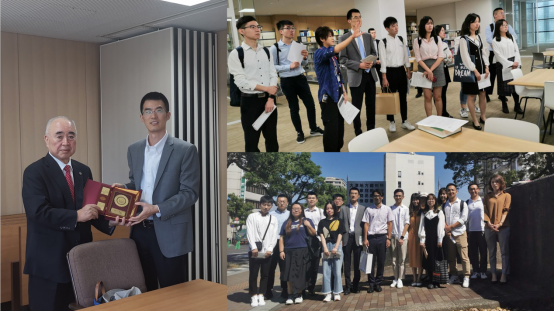
This academic forum enables students of Tongji Law School to grasp a deeper understanding of Japanese legal system, judicial practice and Japanese culture, and has exercised their comprehensive abilities in academic knowledge and language expression. The results are beyond our expectation.
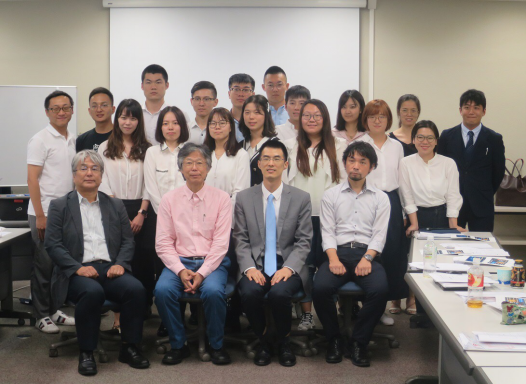
This academic forum is the second academic exchange activity held by Law School of Tongji this year. In recent years, the proportion of graduate students who have studying experience overseas has been increasing. About 60% of the full-time graduate students have been abroad for study, including double degree programs, exchange program and short-term exchange.